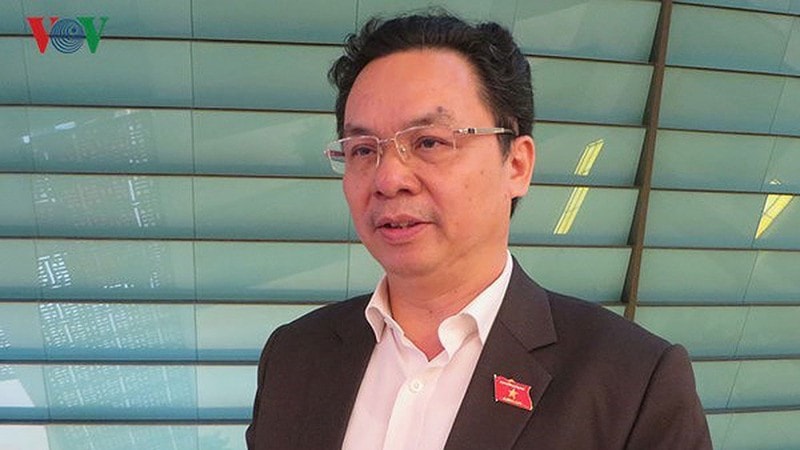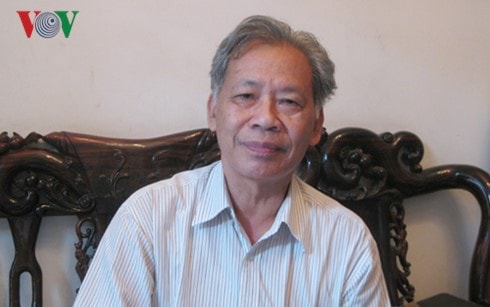'Civil servants can also switch to a contract mechanism'
Mr. Thang Van Phuc - former Deputy Minister of Home Affairs said that the reform idea of abolishing "lifetime civil servants" appeared in the early 2000s with the policy of transforming public service units into autonomous and self-responsible ones. In countries with modern civil service systems, a contract system has also been implemented for civil servants, meaning abolishing "lifetime civil servants".
The Law amending and supplementing a number of articles of the Law on Civil Servants and the Law on Public Employees, which has just been passed by the National Assembly, has officially abolished the term “civil servants for life”. The Law stipulates the implementation of a fixed-term contract regime for newly recruited subjects from July 1, 2020. As for civil servants recruited before July 1, 2020, there is basically no change in the current employment contract regime.
Pressing the button to vote to pass the amended Law, Associate Professor Dr. Hoang Van Cuong (Vice Principal of the National Economics University, National Assembly delegate of Hanoi) said that the regulation to abolish "civil servants for life" also psychologically affected a part of people. Because many people want to have a stable job, they choose the State environment. However, that same mentality of being content with their lot gives rise to laziness and not striving to improve in their work among a part of workers because they think that if they do not violate discipline, they will not be eliminated.
|
| Associate Professor, Dr. Hoang Van Cuong. |
“This also makes it difficult for employers to recruit people with better professional skills. Moreover, by 2021, salaries will no longer be based on ranks, meaning that officials and civil servants will not have to stay in high ranks for a long time to receive high salaries, but will be paid according to their job positions. At that time, those who are capable and work well will be paid accordingly according to their work performance,” said Mr. Hoang Van Cuong.
Therefore, amending and removing the regulation of signing indefinite-term contracts for civil servants will, in the long run, promote the advancement of civil servants as well as create conditions and arrange better human resources. Especially, in the context of a market economy, fluctuations in job positions will create many opportunities for civil servants.
According to the Vice President of the National Economics University, the current Law only stops at abolishing “lifetime civil servants” but needs to go one step further for the civil service sector. If lifelong tenure for civil servants is abolished, the situation of officials “going to work with an umbrella in the morning and returning with an umbrella in the evening” will be eliminated, only worrying about keeping their positions and not striving to improve.
“Moreover, with the current mechanism of determining job positions, there is no longer a lifelong tenure system, which will create competition. Those who use close relationships or other means to lobby for a certain position will not have a chance to survive in the system,” Mr. Hoang Van Cuong emphasized.
Discussing this issue, Mr. Thang Van Phuc - former Deputy Minister of Home Affairs said that the reform idea of abolishing "lifetime civil servants" appeared in the early 2000s with the policy of transforming public service units into autonomous and self-responsible ones. In countries with modern civil service systems, a contract system has also been implemented for civil servants, meaning abolishing "lifetime civil servants".
“In the early 2000s, I went to New Zealand to do research and found that they had implemented a contract system from Deputy Minister down. In our country, for now, we will abolish “lifetime civil servants”. But in the future, even civil servants can switch to a contract mechanism to ensure a dynamic, responsible civil service that demonstrates dedication. Instead of being on the payroll, civil servants or public employees work in the style of “going to work with an umbrella in the morning and going home with an umbrella in the evening” and no one can let them out,” Mr. Phuc said, adding that according to the newly passed amended Law, for two consecutive years, officials and civil servants who do not complete their tasks will be forced to resign.
|
| Mr. Thang Van Phuc - former Deputy Minister of Home Affairs. |
Disagreeing with the view that “abolishing lifelong civil servants will reduce the attractiveness of the public sector, especially highly skilled workers”, Mr. Thang Van Phuc emphasized: The principle of the public and private sectors is competition. The State will have policies so that civil servants do not have to live on salary but on income from their professional products. If the work product is good, civil servants will receive a high salary, not according to the current rank. From there, the spirit of service and responsibility of civil servants will be mobilized.
“For the staff who are confident in their positions and do not fulfill their responsibilities and provide poor service quality, what is the point of keeping them? Create pressure on the staff so that the staff are more dedicated to their work and career, from which the State and society will also treat their contributions more appropriately. If they have been on the staff for 30-40 years but the service quality does not meet the requirements, they should not stay” – said the former Deputy Minister of Home Affairs.




